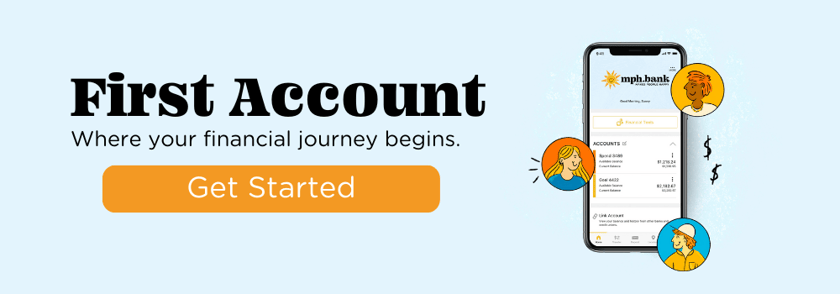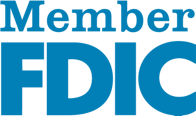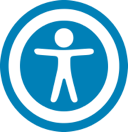In the ever-evolving landscape of personal finance, the younger generations, specifically Generation Z (Gen Z) and Millennials, are on a quest to master the art of managing their money. Armed with technology, access to information, and a desire for financial independence, these cohorts are exploring various avenues to seek money advice. In this article, we will explore where Gen Zers and Millennials are getting their money advice, shedding light on the diverse sources and channels they rely on. From traditional methods to the digital age's innovations, it's a journey into the realm of financial guidance tailored for the modern world.
Related Article: College Students Looking For Financial Tips
1. Online Platforms and Apps
The digital age has ushered in an era of unprecedented accessibility to financial advice. Gen Z and Millennials are tech-savvy, and they turn to online platforms and apps for a wealth of information. Personal finance blogs, YouTube channels, and social media influencers dedicated to money management have garnered significant followings. Platforms like TikTok have seen a surge of personal finance content, offering bite-sized tips and advice to the younger demographic.
Apps play a pivotal role in simplifying financial tasks. Robinhood and Acorns have gained popularity for their user-friendly interfaces and features that facilitate investing and saving. Mint, a budgeting app, has been a game-changer in helping individuals keep their financial goals on track.
Online Platforms:
YouTube: Gen Z and Millennials often turn to YouTube for a wide range of personal finance advice. Channels like "The Financial Diet," "Graham Stephan," and "The Dave Ramsey Show" provide in-depth insights on budgeting, investing, and financial literacy.Reddit (r/personalfinance): Reddit's r/personalfinance is a popular online community where users can seek advice, share their financial experiences, and receive guidance on topics ranging from paying off student loans to retirement planning.
TikTok: The rise of short-form video content on TikTok has brought about a surge in personal finance advice in easy-to-digest, minute-long videos. Financial influencers create content on budgeting, investing, and saving tips.
LinkedIn: LinkedIn is not just for job hunting; it's also a platform where financial experts and professionals share articles, insights, and webinars on personal finance and wealth management.
NerdWallet: NerdWallet is a reputable online platform that offers a wide range of financial advice and resources, from credit card reviews to mortgage calculators. Users can find expert insights and comparisons to make informed financial decisions.
Apps:
Robinhood: Robinhood is a commission-free investing app that allows users to buy and sell stocks, ETFs, and cryptocurrencies. It offers a user-friendly interface and real-time market data.Acorns: Acorns is a micro-investment app that rounds up your everyday purchases to the nearest dollar and invests the spare change in a diversified portfolio. It's an easy way for young investors to start building their nest egg.
Mint: Mint is a popular budgeting app that helps users track their expenses, set financial goals, and receive reminders for bill payments. It also provides insights into credit scores and financial trends.
TikTok: As mentioned earlier, TikTok offers a wealth of personal finance advice in short video clips. Influencers create engaging content on topics like investing, side hustles, and financial hacks.
mph.bank: mph.bank is a digital banking app that combines the convenience of modern banking with personalized financial advice. It offers a range of banking services, from checking and savings accounts to personal loan options, all accessible from your mobile device.
2. Financial Advisors and Planners
While digital resources are abundant, many individuals still prefer a personalized approach to financial advice. Certified financial advisors or planners offer tailored guidance based on a person's unique circumstances and goals. These professionals can assist in retirement planning, investment strategies, and provide advice on wealth management.
For more complex financial situations, such as estate planning or tax optimization, seeking advice from a financial advisor can be invaluable. Millennials, in particular, are turning to advisors to ensure they are making informed decisions about their finances.
3. Parents and Family
For many, the first lessons about money management come from home. Parents and family members play a significant role in shaping financial behaviors. They impart insights on budgeting, saving, and investing based on their own experiences. These informal, family-based financial discussions often serve as foundational knowledge for Gen Z and Millennials.
In some cases, financial assistance from family can be a part of the advice process, such as help with down payments on a first home or guidance on managing an inheritance. The lessons learned from parents' financial journeys can be invaluable.
4. Online Forums and Communities
Online forums and communities have become virtual hubs for Gen Z and Millennials to exchange financial advice and experiences. Platforms like Reddit host subreddits dedicated to personal finance, with r/personalfinance being a prominent example. These spaces enable users to ask questions, share stories, and receive guidance from a community of peers navigating similar financial challenges.
The beauty of online forums is the diverse range of perspectives and experiences available. Whether it's advice on tackling student loan debt, investing in stocks, or strategies for paying off credit card debt, these platforms provide a wealth of knowledge.
5. Podcasts
Podcasts have surged in popularity as a convenient and accessible source of financial advice. Gen Z and Millennials can tune in to episodes on various topics such as investing, budgeting, retirement planning, and more. Many podcasts feature expert hosts and guests who share valuable insights.
"The Dave Ramsey Show," hosted by personal finance guru Dave Ramsey, provides listeners with practical advice on money management and debt reduction. "BiggerPockets Money," on the other hand, focuses on real estate and financial independence. These podcasts offer on-the-go learning for individuals eager to enhance their financial literacy.
6. Books and Publications
Traditional sources of financial advice still hold a significant place in the hearts of Gen Z and Millennials. Books and magazines focused on personal finance, investing, and wealth-building have enduring relevance. Authors like Robert Kiyosaki ("Rich Dad Poor Dad"), Dave Ramsey ("The Total Money Makeover"), and Suze Orman ("The Money Book for the Young, Fabulous & Broke") have produced bestsellers that continue to inspire young adults.
Magazines like "Money" and "Kiplinger's Personal Finance" provide readers with in-depth articles, expert opinions, and tips on managing money effectively. These resources offer a wealth of timeless advice that remains valuable in the digital age.
7. Educational Institutions
Colleges and universities are increasingly incorporating financial literacy into their curriculum, recognizing the importance of equipping students with the knowledge and skills to navigate the financial world. These institutions offer workshops, courses, and seminars focused on personal finance, investment strategies, and retirement planning.
Formal education provides a structured approach to financial literacy, empowering students to make informed decisions as they transition into the workforce. With the rising awareness of student loan debt, financial education at this level is more critical than ever.
8. Online Courses and Webinars
The digital age has opened doors to online courses and webinars that cater to Gen Z and Millennials seeking to enhance their financial knowledge. Platforms like Coursera and edX offer courses on financial literacy, investing, and related topics from reputable institutions worldwide.
Webinars hosted by financial experts and organizations provide participants with the opportunity to engage in real-time discussions, ask questions, and gain insights into specific financial subjects. These online resources have gained traction as individuals look for flexible ways to build their financial acumen.
9. Employers
Some employers have recognized the value of a financially literate workforce. They offer financial wellness programs to their employees, which may include workshops, seminars, and resources on topics such as retirement planning, debt management, and investing. These programs aim to equip employees with the knowledge to make sound financial decisions, ultimately improving their overall well-being.
10. Government and Nonprofit Organizations
Government agencies and nonprofit organizations play a pivotal role in promoting financial literacy. The Consumer Financial Protection Bureau (CFPB) and the National Endowment for Financial Education (NEFE) are among the organizations that offer educational resources on financial literacy, budgeting, and debt management. Their websites, publications, and workshops are accessible sources of information for Gen Z and Millennials seeking to build their financial knowledge.
11. Peer Advice
Conversations with friends and peers can be a valuable source of financial advice. Gen Z and Millennials often seek advice from those within their age group who have personal experience with specific financial matters. Informal discussions with friends can provide insights into day-to-day money management, including budgeting, saving, and investment strategies.
Wrapping Up
In today's dynamic financial landscape, Gen Z and Millennials have an abundance of options for seeking money advice. From the digital realm, where they can explore online platforms, apps, and forums, to traditional sources like family and books, the younger generations have a multitude of avenues to choose from. Financial advisors and planners, educational institutions, and employers also play a pivotal role in equipping these cohorts with the knowledge and tools they need to navigate the intricacies of personal finance.
Ultimately, the diverse range of sources and channels available ensures that Gen Z and Millennials have the resources they need to make informed financial decisions. Whether through digital innovations, personalized advice, or the wisdom passed down from family and mentors, these generations are well-equipped to build a solid financial foundation and embark on their journeys toward financial independence and security.
What do fish use as currency to purchase anything?
Sand Dollars! Sign up to receive important information on banking, financial tips, and jokes like this directly to your inbox










